Plastic pollution and over usage is one of the biggest global environmental issues.
Every day in Myanmar, 80 million plastic bags are used, and in townships in Yangon Region, 10 percent of the 1,690 tons of garbage produced daily is plastic waste, according to CCI France Myanmar, the French Myanmar chamber of commerce and industry. Everyone needs to reduce their use of plastic.
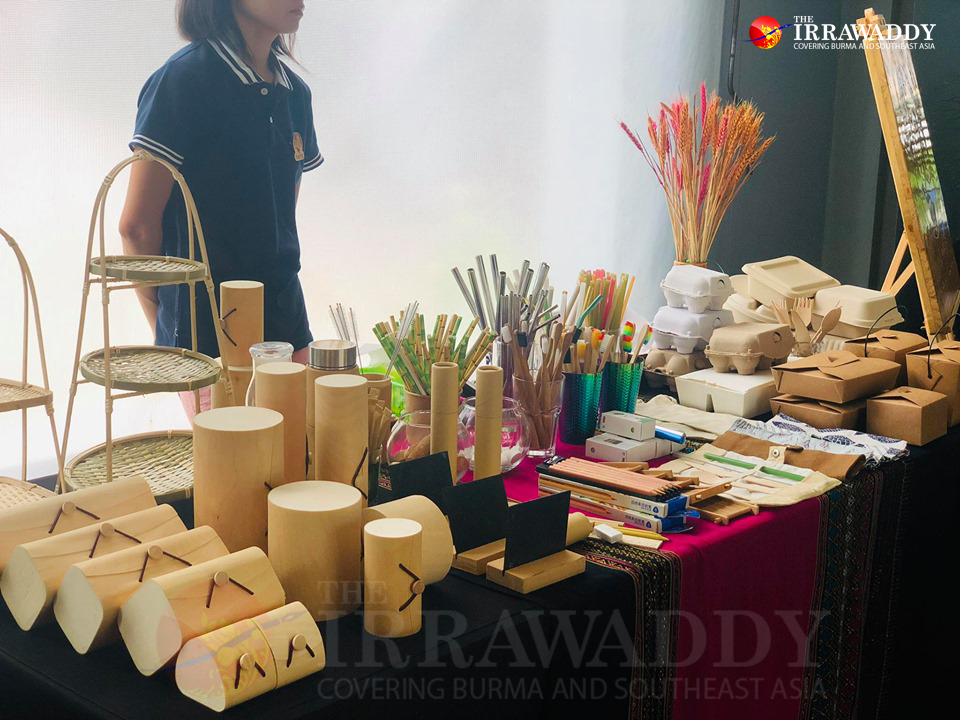
The best way to do this is to use plastic substitutes, said Ko Kyaw Kyaw Htike, founder of Zero Plastic, a local brand that produces and distributes biodegrade, plastic-free products.
“Only a few groups of people are starting to reduce their reliance on single-use plastics, and the problem is there’s no shop selling substitutes. There’re some other local brands which produce recycled products and non-plastic products, but still it is very few and they are small. That’s why I started my business, there’s a market need—and I want to raise public awareness for reducing single-use plastic,” Ko Kyaw Kyaw Htike said.
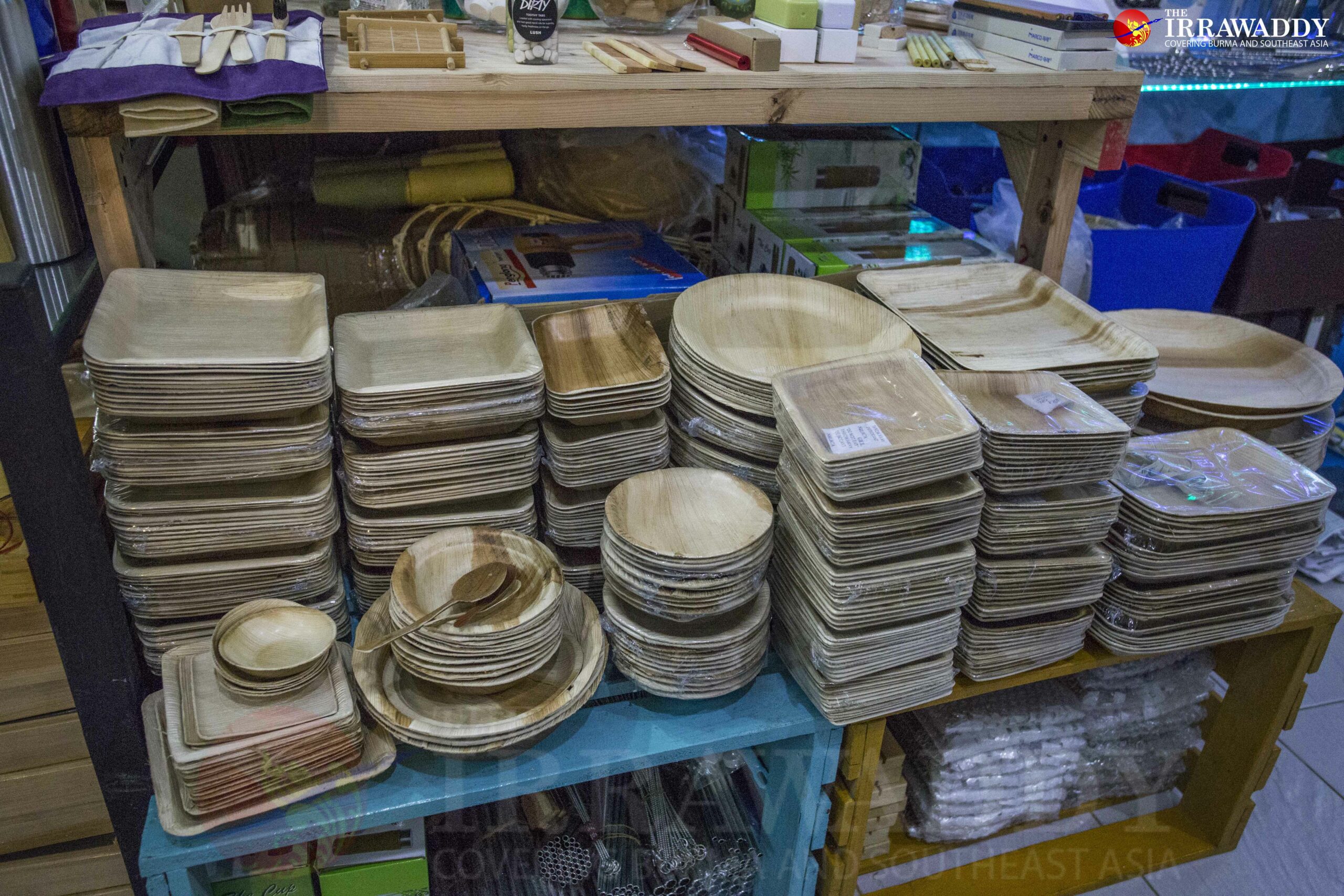
“When the rainy season comes, many townships in Yangon have started flooding because plastic waste is clogging in the city’s [drainage] channels. That is a problem we face every year. It’s so disgusting,” he said.
He launched Zero Plastic in September 2018. Initially, the brand had only 10 items; now they have over 70—some produced by Zero Plastic and some from China.
“The brand name is ‘Zero Plastic,’ but we aren’t actually completely free of plastic. Some items include a few plastic elements but they are reusable, like our shopping bags. If used carefully, they can be reused about 100 times,” he said. “That means we can reduce the use of other plastics in our daily lives. Plastic still has its advantages.”
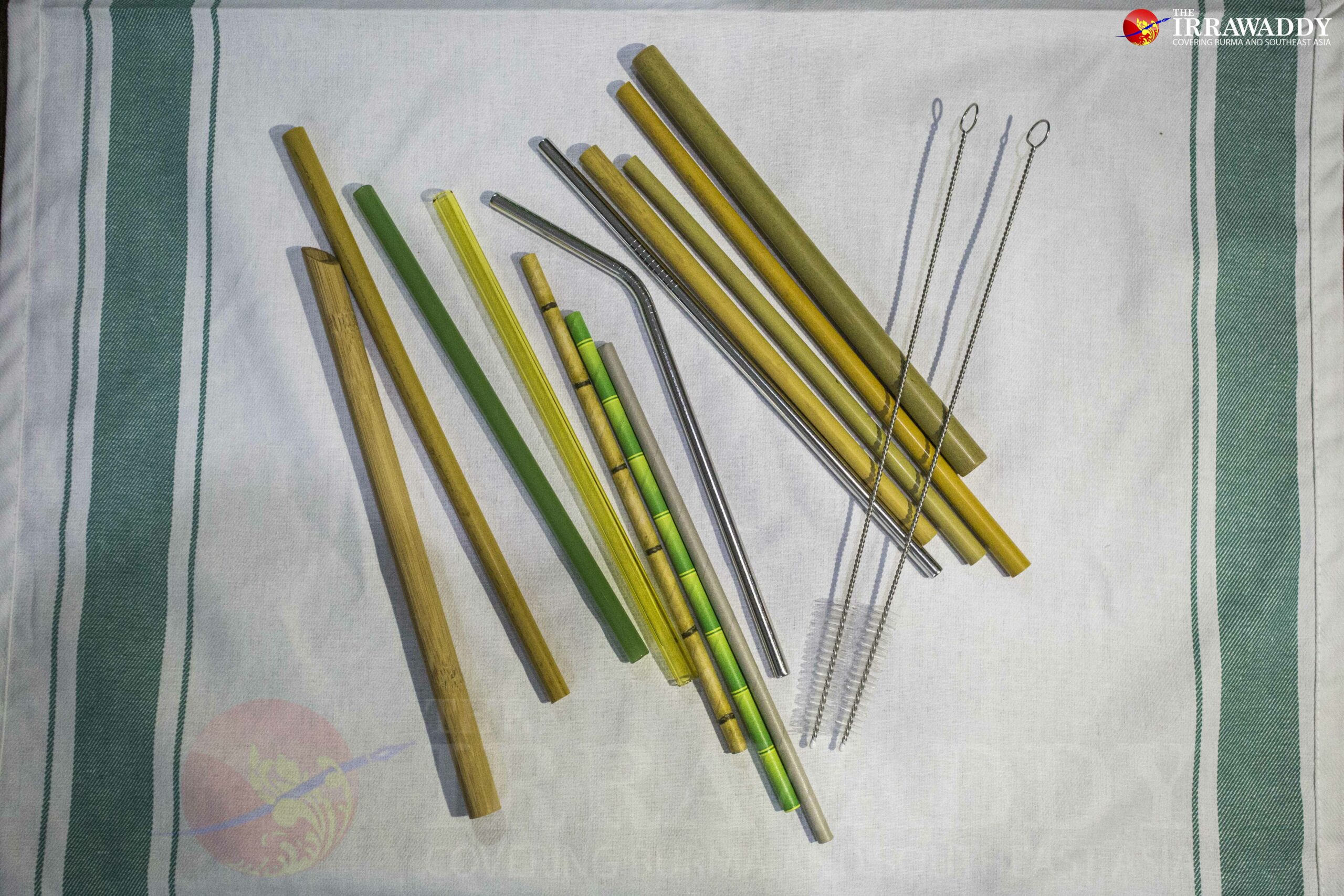
Zero Plastic products include paper shopping bags and cutlery pouches made with traditional fabric designs.
“Paper bags are easy to make. Firstly, [the process] creates jobs for orphans; then, when the schools are open, we offer those jobs to elders between 40 and 50 or 60 years old from Twante Township,” said Ko Kyaw Kyaw Htike.
Before they offer jobs, Ko Kyaw Kyaw Htike and his team provide training. For the paper shopping bags, he needs to collect old newspaper and journals gathered from recycling centers.
“Actually, we want to produce other biodegradable items but we don’t have the basic materials. For example, if we want to make cups or plates form betel nut leaf, first we need to steam the leaves then refine them with machines, so we need the machines too. We contacted some villagers who lived near betel-producing areas and said we will give them the needed machines but they didn’t want to do it,” Ko Kyaw Kyaw Htike said. “We can’t do it on our own because transportation fees are too expensive. That’s the main problem here.”
“But if we get the chance,” he added, “we will produce more locally-made, non-plastic products in the future. Now we’re trying to launch a few new items.”
Currently, Zero Plastic sells bamboo toothbrushes and combs and cotton swabs. They also sell reusable straws made of bamboo, steel, paper and other materials, as well as biodegrade spoons, forks, lunch boxes, take-away packaging and stationary.
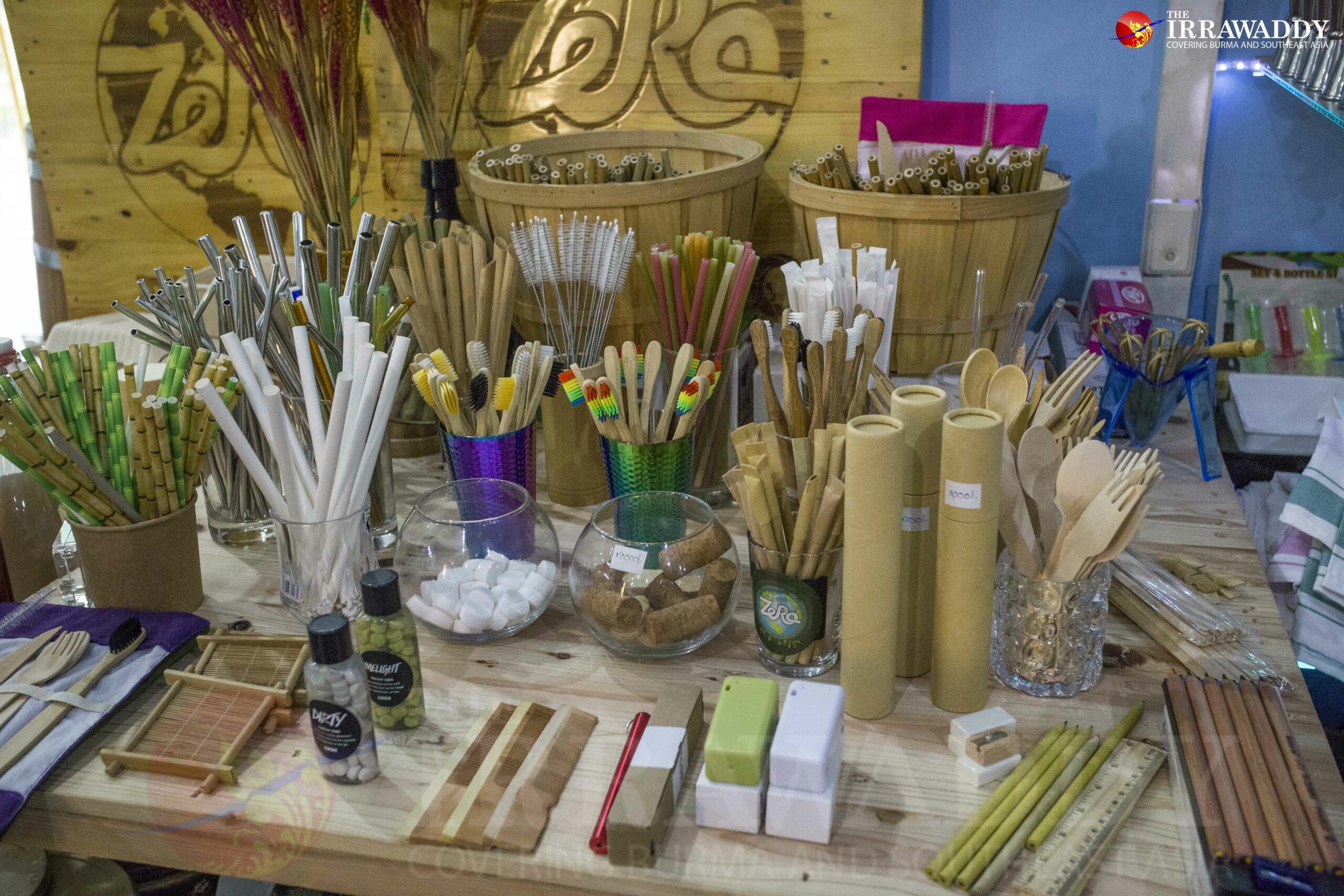
“The products that come from China are quality products, we can guarantee it. We sell quality products at reasonable prices,” Ko Kyaw Kyaw Htike said. “Our main clients are hotels, restaurants and other organizations,” he said.
“Many young people have stopped using plastic,” he said. “The youth have more awareness of [the downsides of] plastic use nowadays and they feel proud to decline it at the shopping counter. That’s good.”
Poorer people, however, can face pricing barriers when trying to use non-plastic or biodegrade products.
“If the plastic bag costs 1 kyat and the non-plastic one costs 2 kyats, they [have to] choose the cheap one. We can’t blame them—they have a limited budget to live on,” Ko Kyaw Kyaw Htike said. “I hope to see more businesses like us in the local market. If the product number increases the price will drop so that even poorer people can use [less plastic].”
He said the important thing is to raise public awareness.
“Many people need to know that we should start reducing our plastic usage, so we need more campaigning and events. If not, many of the non-plastic products that we produce will be wasted.”
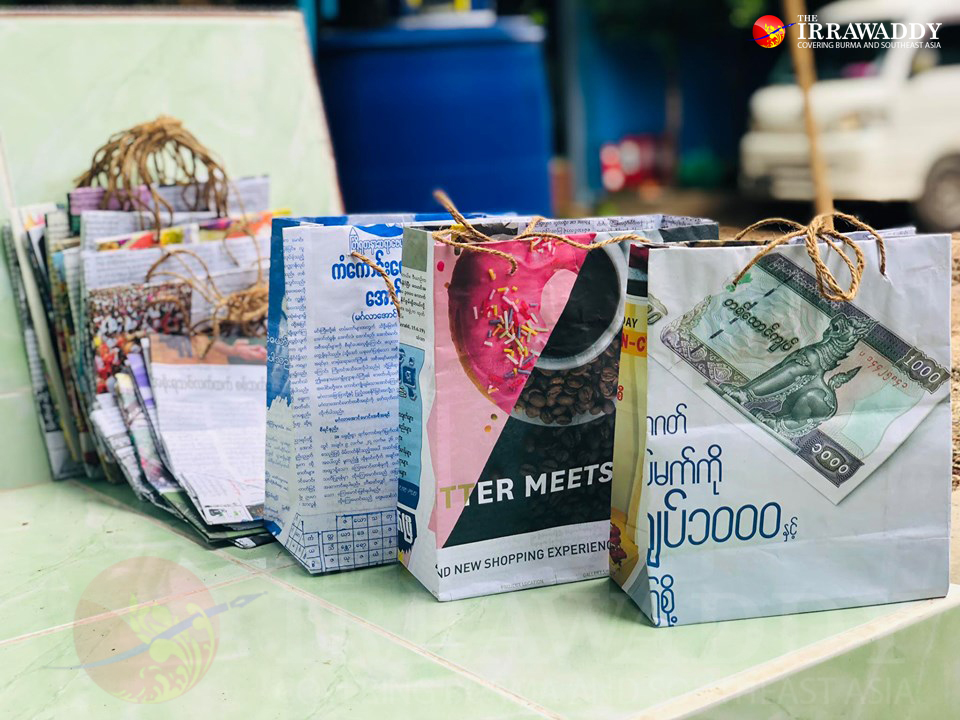
“We can’t change a whole country but we can change ourselves,” he added.
Zero Plastic is located in Mayangone Township, at No. 196, block 5, Radio Station Road, Mayagone, and their products can be ordered through their Facebook page; just search for Zero Plastic.
You may also like these stories:
Plastic Cups Runneth Over at Cambodia’s Rubbish Cafe
Plastic from Burlap? Bangladesh Invents a Green Throw-Away Bag
SE Asia Should Ban Imports of Foreign Trash: Environmentalists
Indonesia Becomes Latest Southeast Asian Country to Return Waste to the West

















